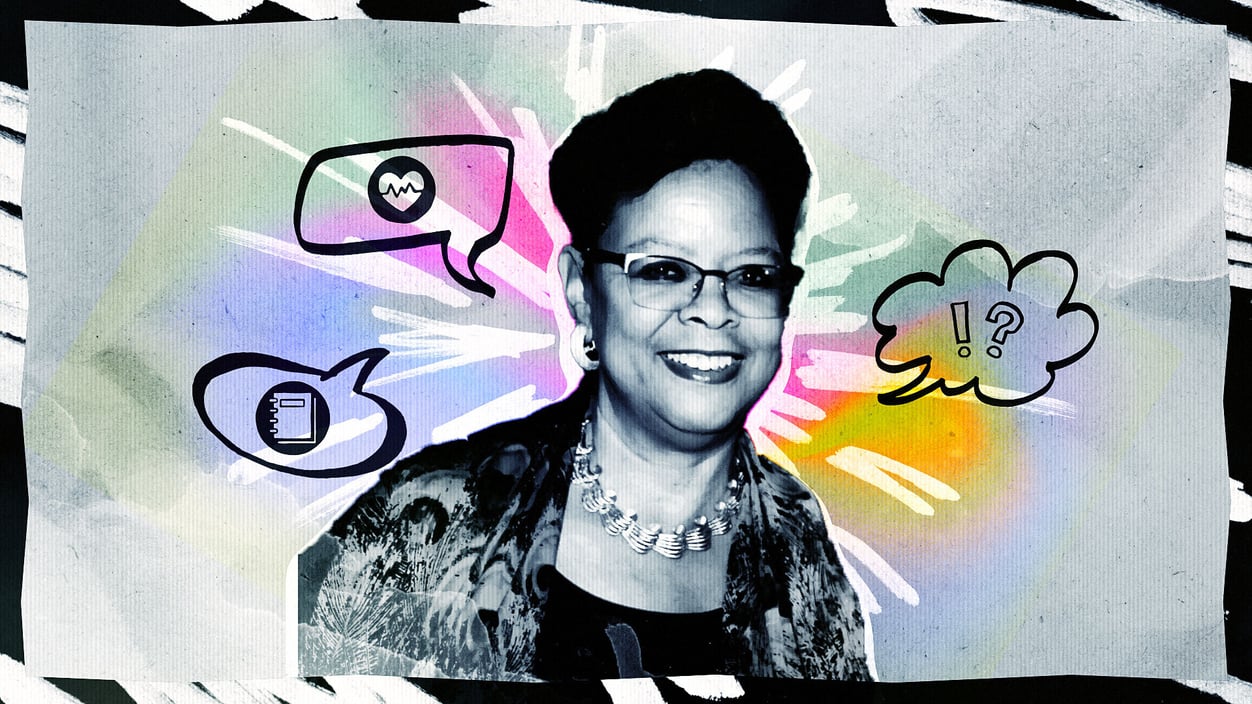Health
CRISPR cures for sickle cell may be coming, but who can access them?
 Courtesy Royal Society
Courtesy Royal Society
Victoria Gray (above) is living proof of the power of CRISPR. After a lifetime of sickle cell disease and its agonizing crises, she joined a clinical trial of a gene therapy created by CRISPR Therapeutics and Vertex Pharmaceuticals, one expected to become the first FDA-approved treatment of its kind. Now free of symptoms, able to be a mom and work a full-time job, Gray is able to "dream again without limitations," she told the audience at the Third International Summit on Human Genome Editing in London this week.
The promise of a one-time cure offers hope to the millions of people living with sickle cell disease — a disorder long subject to scientific neglect and medical racism. But the majority of people with the disease live in sub-Saharan Africa, and face a number of barriers to accessing the new therapies. STAT's Megan Molteni has more.
politics
Collins hints that Biden budget request will seek funds to end hepatitis C
The Biden administration will request "significant investments" to wipe out hepatitis C in its forthcoming budget proposal, former NIH director Francis Collins hinted at last night's STAT event in Washington, D.C. "I would like, if it's possible, to be as bold as possible, and contemplate not just an effort that would improve the situation, but that would eliminate hepatitis C in the United States," said Collins, currently a White House science adviser. "That's a scary word, and obviously would require a huge investment, to try to reach everybody."
Rep. Hank Johnson, (D-Ga.), also at the event, said the request could reach $10 billion over five years. Collins has previously said such a plan could save $26 billion by 2050. And Sen. Bill Cassidy, a Republican from Louisiana said that if the proposal does indeed save money, it's worth pursuing. STAT's Nicholas Florko has more.
chronic diseases
Navigating Parkinson's: 'It was never a thing to say, Why me?'

Photo illustration: Casey Shenery for STAT
In 2020, Sandra Coplin traded life in Covid-ravaged New York City for retirement near family in Connecticut. She also swapped her four-inch-high pumps for "orthopedic-looking shoes" because in her last years as a legal records manager, she had begun navigating life with Parkinson's. STAT's Isabella Cueto asked her how her life has shifted since.
Tell us about learning you had Parkinson's.
When I found out in 2017, it was never a thing to say, 'Why me?' because I felt I had been blessed in my life.
What were the first signs?
Fatigue. As I learned with Parkinson's, we tend to have an on-off time. I had a loss of appetite. And then the balance.
Do you have advice for others with a new diagnosis?
Ask the questions. There's no question that's ridiculous. And if you're made to feel that way, I suggest getting another neurologist.
Read the full interview.


No comments